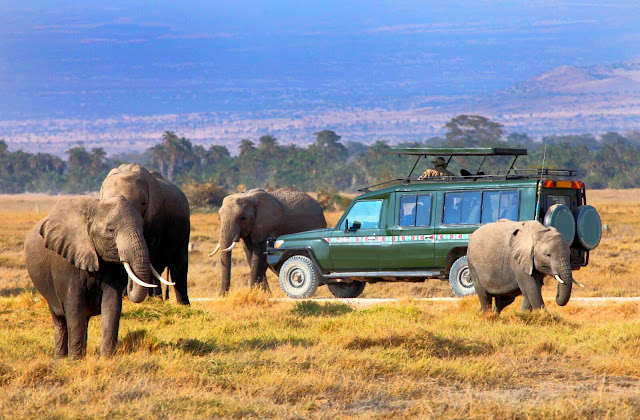Unveiling the Dynamics of Wildlife Hunting Tourism: Trends & Insights
 |
| Wildlife Hunting Tourism |
Wildlife hunting tourism stands at the crossroads of
adventure, conservation, and cultural immersion, offering enthusiasts an
opportunity to engage with nature in a unique and exhilarating way. From the
vast expanses of the African savannah to the rugged terrain of the Canadian
wilderness, hunters embark on journeys filled with excitement, challenge, and
discovery.
Destination Diversity: Wildlife Hunting Tourism encompasses a diverse array of
destinations, each with its own unique allure and offerings. Africa remains a
perennial favorite among hunters, drawing adventurers with its iconic big game
species such as lions, elephants, and rhinoceroses. Other regions, including
North America, Europe, and Asia, also boast rich hunting grounds, catering to a
wide range of preferences and interests.
Shift Towards Sustainable Practices: In recent years, there
has been a noticeable shift towards sustainable hunting practices within the
wildlife hunting tourism industry. Recognizing the importance of conservation
and ecological preservation, many operators and enthusiasts alike are embracing
principles of ethical hunting, including fair chase, species management, and
habitat protection. This emphasis on sustainability not only ensures the
long-term viability of wildlife populations but also enhances the overall
integrity of the hunting experience.
Technology
Integration:
Advancements in technology are transforming the landscape of
wildlife hunting tourism, enhancing both safety and efficiency for
participants. From GPS tracking devices and trail cameras to specialized
hunting gear and weaponry, technology is empowering hunters to navigate
terrain, track game, and make informed decisions with greater precision.
Additionally, digital platforms and mobile applications are facilitating easier
communication between operators and clients, streamlining the booking process
and enhancing the overall customer experience.
Cultural Immersion
and Community Engagement:
Beyond the thrill of the hunt itself, wildlife hunting
tourism offers participants a unique opportunity to engage with local cultures
and communities. Many hunting expeditions incorporate elements of cultural immersion,
allowing hunters to learn from indigenous guides, participate in traditional
ceremonies, and gain a deeper appreciation for the interconnectedness of humans
and nature. Moreover, responsible operators often prioritize community
engagement and sustainable tourism practices, ensuring that local populations
benefit from the economic opportunities generated by hunting tourism.
Educational
Experiences:
Wildlife hunting tourism provides participants with
invaluable educational experiences, fostering a deeper understanding of
wildlife ecology, behavior, and conservation. Through hands-on learning and
observation, hunters gain insights into the complex dynamics of predator-prey
relationships, habitat management, and the importance of biodiversity conservation.
These educational opportunities not only enrich the hunting experience but also
contribute to broader efforts aimed at raising awareness and promoting
environmental stewardship.
Regulatory Frameworks and Compliance: Effective regulation
is essential for ensuring the ethical and sustainable operation of wildlife
hunting tourism activities. Many countries and jurisdictions have established
regulatory frameworks governing hunting practices, including licensing
requirements, bag limits, and seasonal restrictions. Compliance with these
regulations is paramount for operators and participants alike, ensuring the
responsible management of wildlife populations and habitats.
Wildlife hunting tourism represents a dynamic and
multifaceted industry, driven by a passion for adventure, conservation, and
cultural exchange. By embracing sustainable practices, leveraging technology,
and fostering community engagement, the industry is poised to thrive while
safeguarding the natural heritage it depends on. As we continue to unveil the
dynamics of wildlife hunting tourism, it is essential to uphold principles of
ethics, conservation, and responsible stewardship, ensuring that future
generations can enjoy and appreciate the wonders of the natural world.
Explore More Articles
-
Portable Security
Cabins



Comments
Post a Comment